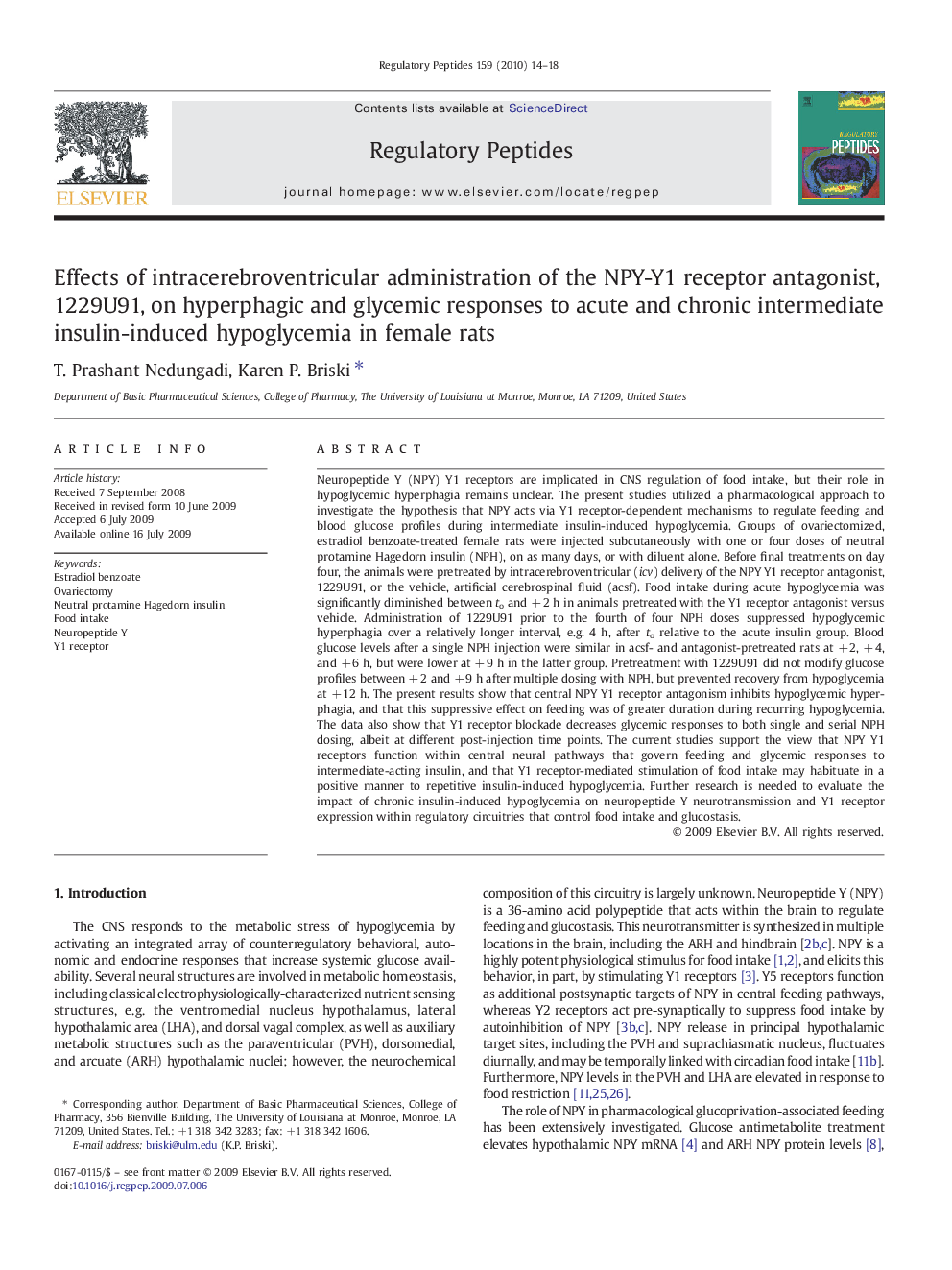| Article ID | Journal | Published Year | Pages | File Type |
|---|---|---|---|---|
| 2022968 | Regulatory Peptides | 2010 | 5 Pages |
Neuropeptide Y (NPY) Y1 receptors are implicated in CNS regulation of food intake, but their role in hypoglycemic hyperphagia remains unclear. The present studies utilized a pharmacological approach to investigate the hypothesis that NPY acts via Y1 receptor-dependent mechanisms to regulate feeding and blood glucose profiles during intermediate insulin-induced hypoglycemia. Groups of ovariectomized, estradiol benzoate-treated female rats were injected subcutaneously with one or four doses of neutral protamine Hagedorn insulin (NPH), on as many days, or with diluent alone. Before final treatments on day four, the animals were pretreated by intracerebroventricular (icv) delivery of the NPY Y1 receptor antagonist, 1229U91, or the vehicle, artificial cerebrospinal fluid (acsf). Food intake during acute hypoglycemia was significantly diminished between to and + 2 h in animals pretreated with the Y1 receptor antagonist versus vehicle. Administration of 1229U91 prior to the fourth of four NPH doses suppressed hypoglycemic hyperphagia over a relatively longer interval, e.g. 4 h, after to relative to the acute insulin group. Blood glucose levels after a single NPH injection were similar in acsf- and antagonist-pretreated rats at + 2, + 4, and + 6 h, but were lower at + 9 h in the latter group. Pretreatment with 1229U91 did not modify glucose profiles between + 2 and + 9 h after multiple dosing with NPH, but prevented recovery from hypoglycemia at + 12 h. The present results show that central NPY Y1 receptor antagonism inhibits hypoglycemic hyperphagia, and that this suppressive effect on feeding was of greater duration during recurring hypoglycemia. The data also show that Y1 receptor blockade decreases glycemic responses to both single and serial NPH dosing, albeit at different post-injection time points. The current studies support the view that NPY Y1 receptors function within central neural pathways that govern feeding and glycemic responses to intermediate-acting insulin, and that Y1 receptor-mediated stimulation of food intake may habituate in a positive manner to repetitive insulin-induced hypoglycemia. Further research is needed to evaluate the impact of chronic insulin-induced hypoglycemia on neuropeptide Y neurotransmission and Y1 receptor expression within regulatory circuitries that control food intake and glucostasis.
